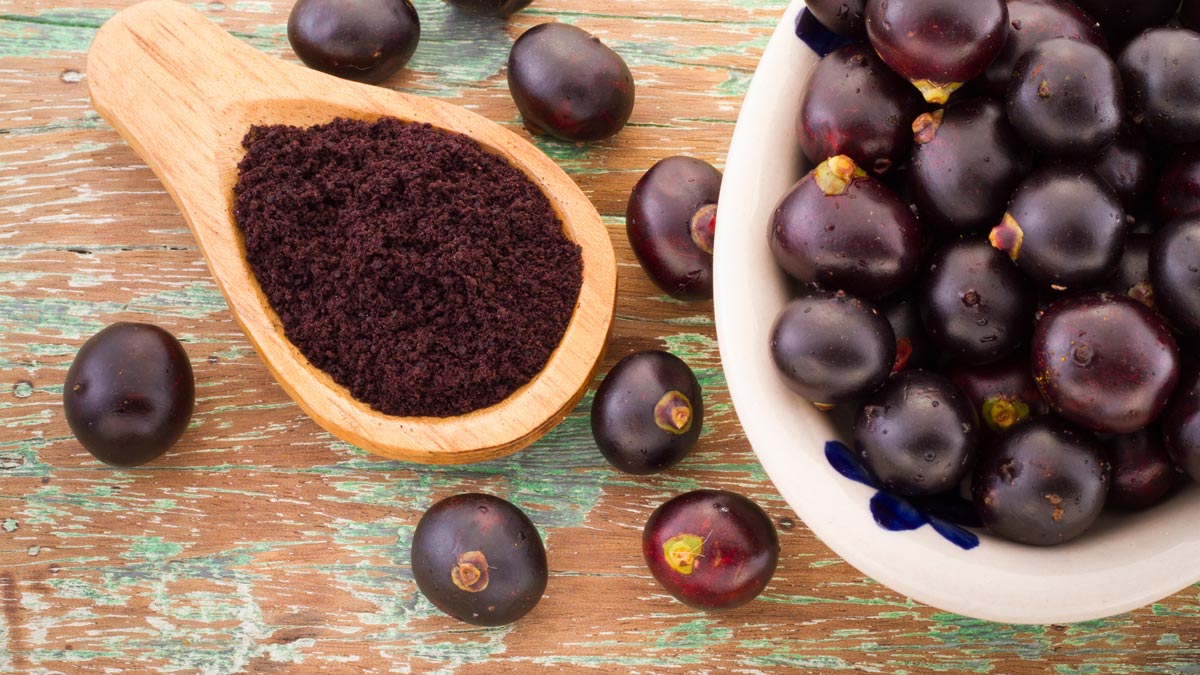Unveiling the Acai Berry: What You Need to Know
In the world of sports and nutrition, the Acai Berry has made quite a name for itself. You might have heard about it as a superfood, a weight-loss wonder, or an immune system booster. But what’s the real deal behind this small, reddish-purple berry, and how can it benefit athletes like you?
Acai Berry: Nature’s Little Secret
The Acai Berry, scientifically known as Euterpe oleracea, is native to Central and South America. It’s a modest-looking fruit that packs a punch regarding nutrients. Each 3.5 oz (99 g) serving contains approximately 70 calories, making it an attractive option for those watching their calorie intake. But what makes the Acai Berry stand out is its phytonutrients called anthocyanins, known for their antioxidant properties.
The Acai Hype: Separating Fact from Fiction
In a world where marketing campaigns promise the moon and stars, it’s essential to separate fact from fiction. Acai has been hailed as a superfood that promotes weight loss, boosts the immune system, and reduces inflammation. These claims have led to a surge in products ranging from frozen pulp and juices to supplements. But before you jump on the Acai bandwagon, it’s crucial to understand how it works and what scientific research actually says.
How Does Acai Work?
While the exact mechanism of action of Acai remains uncertain, it’s believed that the anthocyanins in the berry play a role in curbing the production of free radicals – unstable molecules that can harm our cells, especially during periods of stress like intense exercise. This potential protective effect could be a boon for athletes, as it might help mitigate excessive inflammation and immune stress, which can impact performance.
Potential Performance Benefits
Athletes often look for ways to enhance their health and performance during rigorous training cycles. Acai is rumored to offer benefits such as reducing inflammation and strengthening the immune system. When incorporated into a diet rich in fruits and vegetables, it may also contribute to weight management.
What Does Research Say?
While Acai’s antioxidants are believed to be the source of its benefits, it’s estimated that the human body absorbs less than 5% of the anthocyanins in Acai. Limited human trials have suggested better absorption rates when Acai is consumed as pulp or juice, but the small sample sizes raise questions about the reliability of these findings (Mertens-Talcott et al., 2008). Animal studies have attributed Acai’s immune-boosting qualities to its polysaccharide content rather than its anthocyanins (Holderness et al., 2011). More research with human subjects is needed to establish a definitive mechanism and credible recommendations. Currently, health experts generally agree that while including Acai in a diet rich in fruits and vegetables is beneficial, insufficient scientific evidence supports claims that Acai supplements promote weight loss, reduce inflammation, or significantly enhance human health or performance.
The Common Usage and Health Concerns
The best way for those who want to incorporate Acai into their diets is through the pulp or juice forms, as the body more readily absorbs these. However, supplements are not recommended at this time due to the lack of robust scientific support.
In Conclusion
The Acai Berry is undoubtedly a fascinating fruit with potential health benefits for athletes and anyone seeking a nutritious addition to their diet. However, it’s crucial to remain discerning amidst the marketing hype and remember that scientific research is ongoing. While Acai has its merits, there’s still much to learn about how it can best benefit us. In the meantime, enjoy it as part of a well-rounded diet, but don’t expect miracles from Acai supplements just yet. Stay tuned for further updates and insights into the world of sports supplements right here.
FAQs: Your Acai Berry Questions Answered
Is Acai Berry a true superfood?
Acai Berry is often called a superfood due to its rich nutrient profile, including antioxidants and fiber. However, the term “superfood” can be subjective, and its health benefits should be viewed in the context of a balanced diet.
Can Acai Berry help with weight loss?
While Acai may aid in weight management when consumed as part of a balanced diet, it’s not a magic solution for weight loss. Healthy eating habits and regular exercise are key to achieving and maintaining a healthy weight.
Are Acai Berry supplements worth it?
Currently, scientific evidence supporting the efficacy of Acai Berry supplements is limited. Getting your nutrients from whole foods like fresh Acai or Acai pulp/juice is generally recommended rather than relying solely on supplements.
Is Acai Berry safe to consume?
Acai Berry is considered safe for most people when consumed as part of a balanced diet. However, if you have allergies or health concerns, it’s wise to consult a healthcare professional before making it a significant part of your diet.
Reference
- Holderness J, Schepetkin IA, Freedman B, Kirpotina LN, Quinn MT, Hedges JF, Jutila MA. Polysaccharides isolated from Açaí fruit induce innate immune responses. PLoS One. 2011 Feb 28;6(2):e17301. doi: 10.1371/journal.pone.0017301. PMID: 21386979; PMCID: PMC3046208.
- Mertens-Talcott SU, Rios J, Jilma-Stohlawetz P, Pacheco-Palencia LA, Meibohm B, Talcott ST, Derendorf H. Pharmacokinetics of anthocyanins and antioxidant effects after the consumption of anthocyanin-rich acai juice and pulp (Euterpe oleracea Mart.) in human healthy volunteers. J Agric Food Chem. 2008 Sep 10;56(17):7796-802. doi: 10.1021/jf8007037. Epub 2008 Aug 12. PMID: 18693743.
